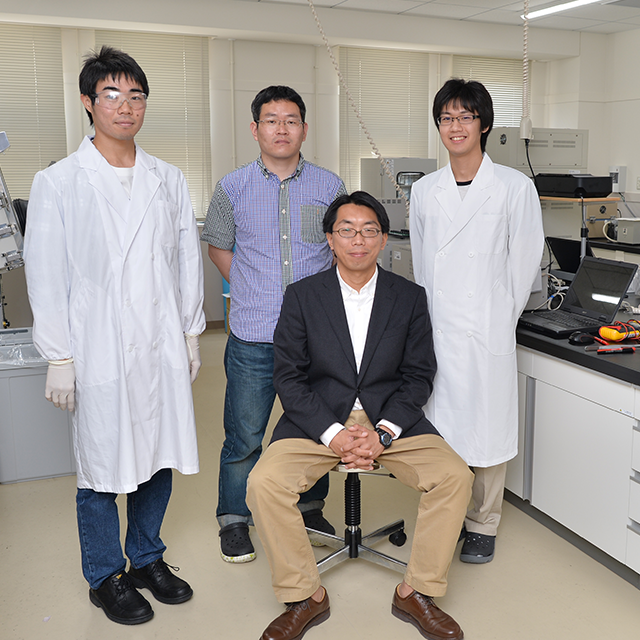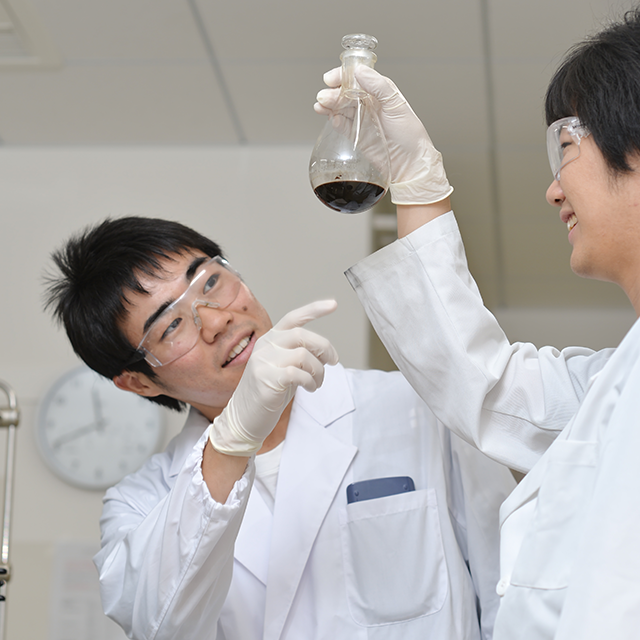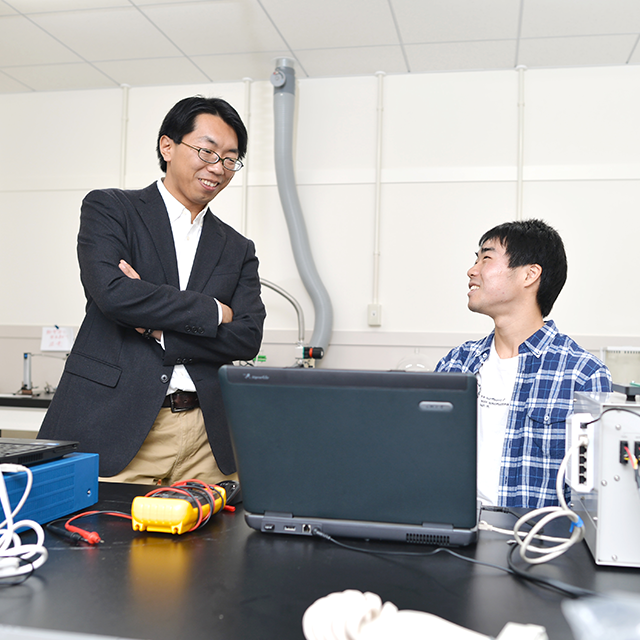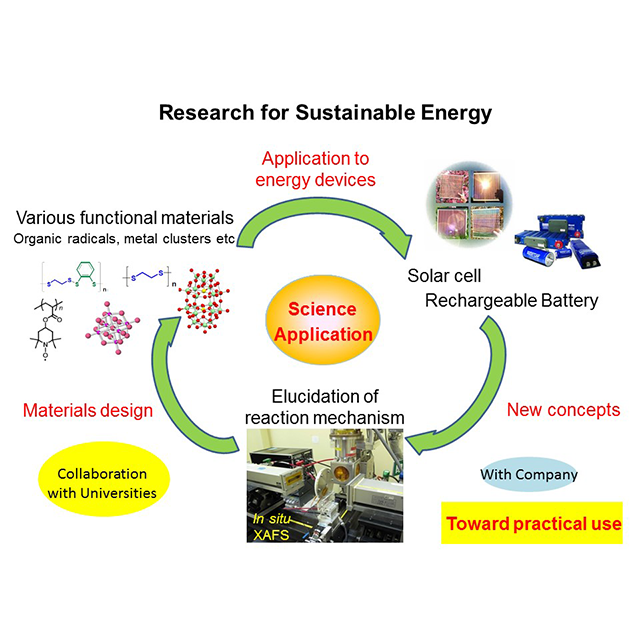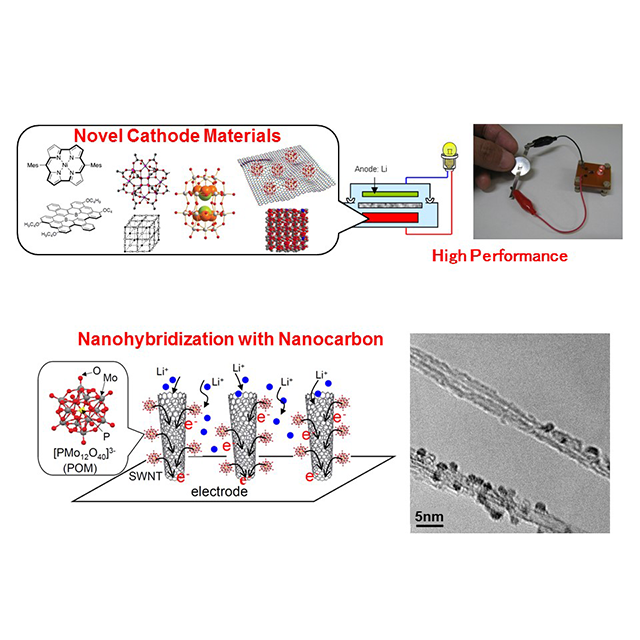Teacher introduction
Professor Hirofumi YOSHIKAWA
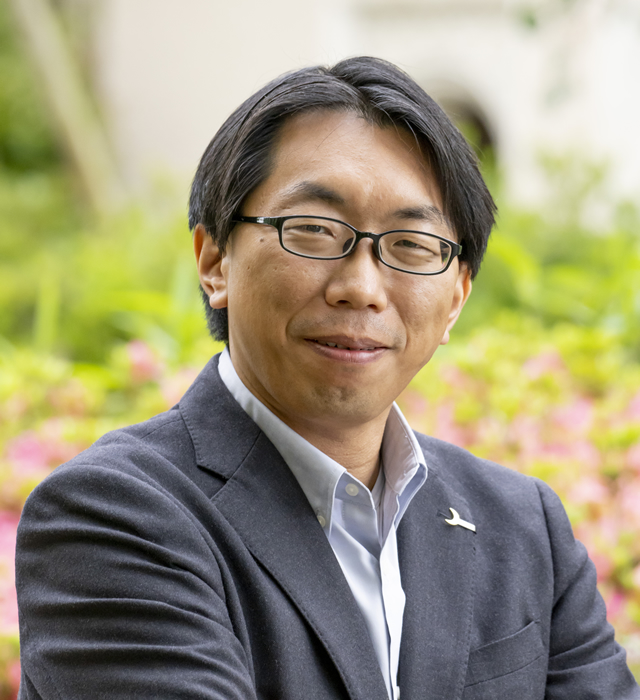 Hirofumi Yoshikawa was born in Nara, Japan, in 1975. He obtained his B.Sc. (1998), M.Sc. (2000), and Ph.D. (2003) degrees in chemistry from the University of Tokyo. He then served as a postdoctoral research fellow working with Professor Kunio Awaga at Research Center for Materials Science, Nagoya University in 2003 and became an Assistant Professor in 2005 at Department of Chemistry, Graduate School of Science, Nagoya University. His current research objective is to develop high-performance rechargeable batteries using redox-active molecule-based materials as a cathode active material and to explore novel physical properties induced by solid-state electrochemical reactions. He has received the 25th Selected Lectures by Young Chemists in The 91th Spring Meeting of The Chemical Society of Japan (2011) and Young Scientist Awards of the Japan Society for Molecular Science (2012).
Hirofumi Yoshikawa was born in Nara, Japan, in 1975. He obtained his B.Sc. (1998), M.Sc. (2000), and Ph.D. (2003) degrees in chemistry from the University of Tokyo. He then served as a postdoctoral research fellow working with Professor Kunio Awaga at Research Center for Materials Science, Nagoya University in 2003 and became an Assistant Professor in 2005 at Department of Chemistry, Graduate School of Science, Nagoya University. His current research objective is to develop high-performance rechargeable batteries using redox-active molecule-based materials as a cathode active material and to explore novel physical properties induced by solid-state electrochemical reactions. He has received the 25th Selected Lectures by Young Chemists in The 91th Spring Meeting of The Chemical Society of Japan (2011) and Young Scientist Awards of the Japan Society for Molecular Science (2012).
Labo Homepage
Electrochemistry
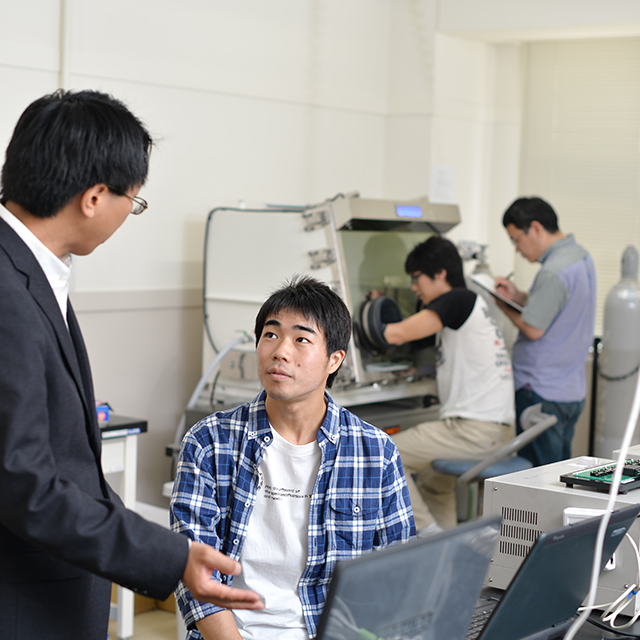 Recently, much attention has been focused on development of high-performance rechargeable batteries due to the global energy and environmental crises. Our research interest is to find novel cathode materials toward the next-generation rechargeable battery. In order to realize a high capacity, a stable cycle performance, a rapid charging, and so on, we examine battery performances of various materials such as organic and inorganic compounds, nanomaterials etc., which can take the place of the present general cathode materials, transition metal oxides. We also study operando XAFS to reveal their battery reaction mechanism.
Recently, much attention has been focused on development of high-performance rechargeable batteries due to the global energy and environmental crises. Our research interest is to find novel cathode materials toward the next-generation rechargeable battery. In order to realize a high capacity, a stable cycle performance, a rapid charging, and so on, we examine battery performances of various materials such as organic and inorganic compounds, nanomaterials etc., which can take the place of the present general cathode materials, transition metal oxides. We also study operando XAFS to reveal their battery reaction mechanism.
Curriculum
- Introduction of Nanotechnology for Sustainable Energy
- Nano-chemistry I
- Themodynamics for Energy Materials
- Themodynamics for Energy Materials (Practice)
- Advanced Course of Nanotechnology for Sustainable Energy
KEYWORD
Rechargeable Battery, Super-capacitor, Coordination Compounds, Nanocarbon, XAFS
Theme
Research in details
Recently, much attention has been focused on the creation of new energy systems, such as high-performance rechargeable batteries, as a solution to the global energy and environmental crises. Redox active molecular materials are good candidates for a high-performance cathode active material. To achieve both rapid charge/discharge and high power density, we have developed “molecular cluster batteries” using polynuclear metal complex clusters (molecular clusters), which exhibit multi-electron redox reactions, as a cathode active material for lithium batteries, and then achieved a larger capacity than that of the present Li ion battery using LiCoO2 as a cathode active material. Furthermore, to modify their battery performances, we also tried to nano-hybridize molecular clusters with nano-carbons such as single-walled carbon nanotubes, graphenes, and mesoporous carbons. The obtained nano-hybrid materials between molecular clusters and nano-carbons exhibited much larger capacities, compared with those of non-nanohybrid materials, due to the coexistence of redox reactions of molecular clusters and electrical double layer capacitors of nanocarbons enhanced by nanohybridization. These results indicated that development of redox active molecular materials and nanohybridization with nanocarbons are very important toward realization of next generation energy storage devices. From both viewpoints of applications and fundamental sciences, we are trying to investigate new materials and discover novel principles now.
List of collaborations
Nagoya Univ., Institute for Molecular Science, Kyusyu Univ. Kinki Univ., Newcastle Univ., Zhejiang Normal Univ. and so on.
Inside laboratory
